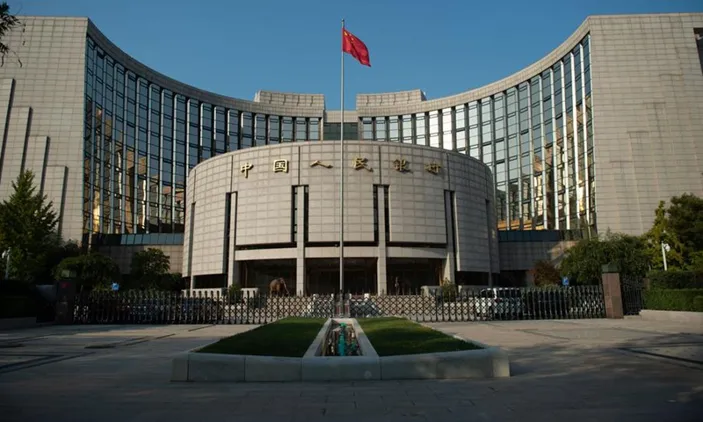PBC Executes 300 Billion Yuan in 14-Day Reverse Repos

The People's Bank of China (PBC), the nation's central bank, has announced a substantial operation involving 300 billion yuan, equivalent to approximately 42.17 billion dollars, through 14-day reverse repos. This maneuver was executed via interest rate bidding with a fixed quantity and multiple-price auctions.
This operation marks the first instance of the newly announced policy, which came into effect on September 19. The adjustment to interest rate bidding and multiple-price auctions seeks to ensure adequate liquidity within the banking system and to better accommodate the diverse funding requirements of participating financial institutions.
A reverse repo is a transaction wherein the central bank purchases securities from commercial banks with the agreement to sell them back at a later date. According to the Xinhua News Agency, this process is crucial in managing liquidity in the financial markets.
With the National Day holidays approaching, there is a notable rise in consumer cash withdrawal demands. Wang Qing, the chief macroeconomic analyst at Golden Credit Rating International, highlighted that these operations are essential in alleviating potential upward pressures on funding rates.
Wang further emphasized expectations that the PBC will persist in injecting short-term liquidity into the market. Post-holidays, the central bank is anticipated to utilize maturing funds for net withdrawals to stabilize any fluctuations, ensuring that short-end liquidity remains both stable and ample.
Following the shift to multiple-price auctions, the 14-day reverse repos will no longer have a unified winning bid rate. Instead, institutions will submit bids independently based on their funding needs and risk preferences, with outcomes determined by market dynamics.
This adjustment is indicative of an ongoing transformation within China's monetary policy framework, highlighting a growing focus on price-based regulations. By deepening interest rate marketization reforms, the PBC aims to enhance the role of interest rates in guiding financial resource allocation, thereby bolstering the real economy.
Currently, the PBC possesses a well-stocked liquidity toolkit that features a balanced distribution of tenors. Long-term measures include cuts to the reserve requirement ratio and government bond trading, while medium-term tools consist of the Medium-term Lending Facility and various structural instruments.
In addition, short-term instruments include seven-day and 14-day reverse repos in open market operations. Under a moderately loose monetary policy, the central bank is poised to inject liquidity across various durations based on economic performance, ensuring that market demands are met.
The report suggests that the PBC will continue to refine and innovate its structural monetary policy tools to optimally support the high-quality development of the real economy, thereby demonstrating a commitment to sustaining financial stability.
Read These Next

Credit Ratings Send Mixed Signals for Investment Strategies
The article discusses the recent credit ratings update for a company by major agencies, highlighting concerns and the implications for investors and stakeholders.

Alibaba and DeepSeek Unveil New AI Models to Boost Adoption
Alibaba and DeepSeek have launched upgraded AI models to enhance adoption across industries and democratize access to technology.

Leadership Change After Ms. Dai Juy's Passing
The report discusses the significant change in ownership and control of the company following the passing of Ms. Dai Juy and the inheritance of her shares by her son, Mr. Tao Hai. It highlights the potential impacts of the ownership transition on investor sentiment and corporate governance in light of historical precedents.
